11
2024.10
“I didn’t have any skills before, but now I do. I can now support myself, and this has indeed given me much more confidence and a real sense of strength.” says Shi Xiaohua, a disabled embroiderer at a handicraft workshop in Wenchuan County, southwest China's Sichuan Province, where she has been working for six years.
At 50, working as an embroiderer is Shi’s first job. Due to her leg disability, she once struggled to find work and had to stay home to care for her children.
“My family used to get by on just my husband’s income to support the four of us,” Shi recalls. Now, with her monthly salary of over 3,000 yuan (420 U.S. dollars), she has become the “pillar” of the family.
 Shi Xiaohua (Right) was interviwed by Tsinghua Students
Shi Xiaohua (Right) was interviwed by Tsinghua Students
Since 2018, Wenchuan has capitalized on Zhejiang Province’s paired assistance program, leveraging Zhejiang’s abundant raw materials and huge market to establish handicraft workshops. The Wenchuan handicraft workshop is a prime example.
As a member of the Qiang ethnic group, Yang Mei, the head of the workshop, has been learning traditional Qiang embroidery from her family elders since childhood. By integrating Tibetan and Qiang elements into garments, she has pioneered the development model. Under her guidance, the workshop has transformed from a family workshop into a modern factory with over 70 employees, benefiting more and more locals.
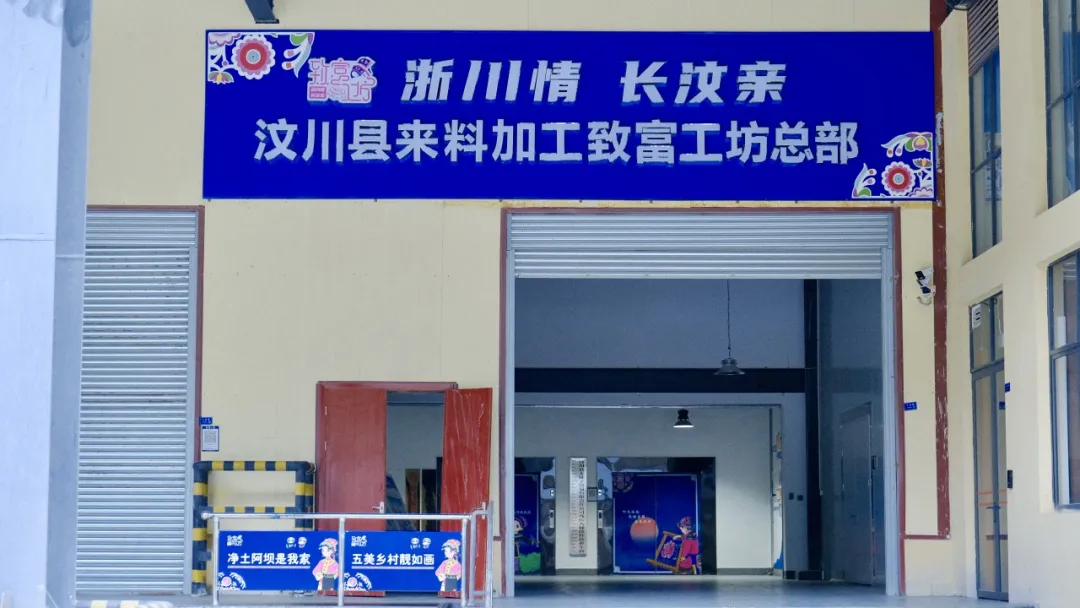 The Wenchuan handicraft workshop
The Wenchuan handicraft workshop
At present, there are about 40 workers at the workshop who opt for flexible working arrangements, engaging in work-from-home process.
“Flexible employment is a key feature of our workshop. We employ local idle workers,” she said. “They usually do farm work or sell fruits, while sitting at home, watching TV and doing some crafts. By doing so, they can earn some extra money for their households.”
In addition, the workshop also provides employment opportunities for local disabled people.
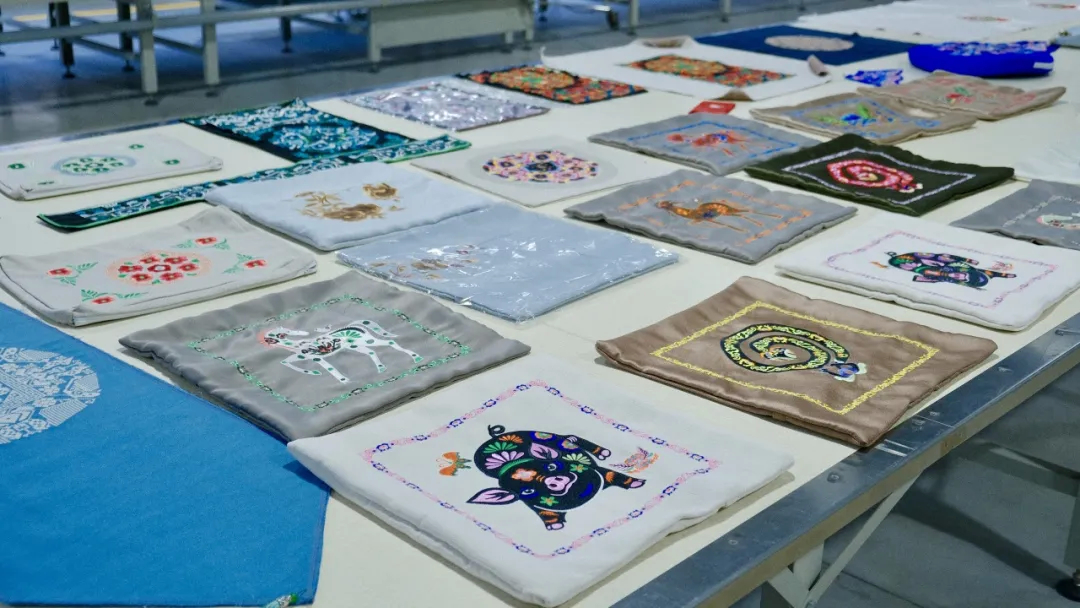 Embroidery works made in the Wenchuan handicraft workshop
Embroidery works made in the Wenchuan handicraft workshop
30-year-old Wang Peng is from Qipangou Village, where the workshop is located. Despite his disability on arms and legs, he learned to operate the sewing machine within a month under the mentor’s hands-onl guidance. Now he can finish about 1,800 pieces and earning 250 yuan per day.
“We ourselves train each newcomer, and then they bring in other workers, including their relatives and friends. Like a spark, soon everyone will be able to do skilled work.” Yang said. In the early days of the workshop, professional technicians of the local government helped to train workers.
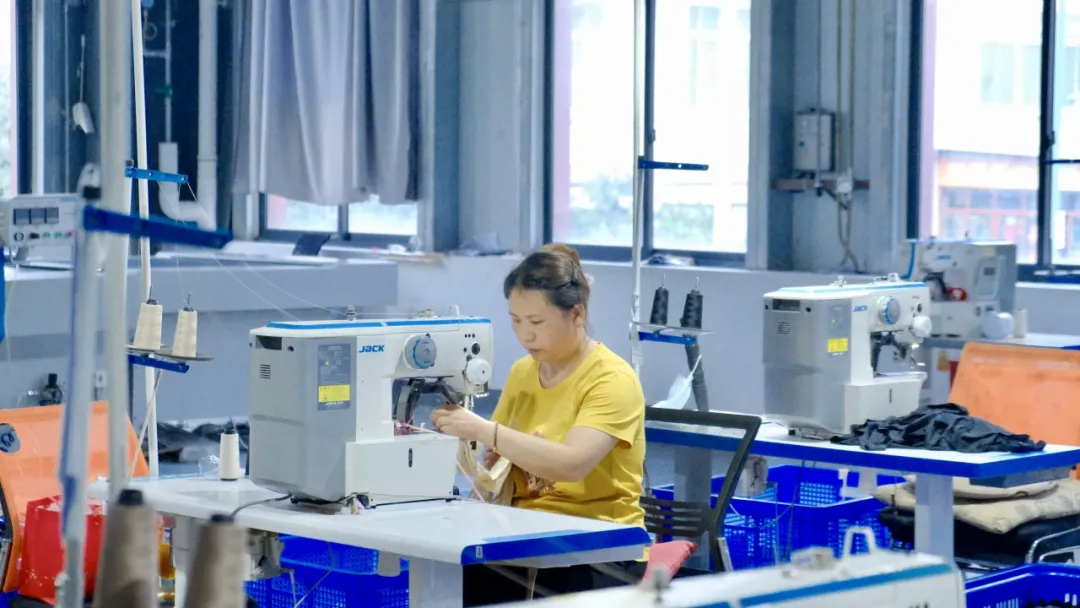 A deaf-mute worker operating the sewing machine
A deaf-mute worker operating the sewing machine
Shi is now a mentor, teaching disabled people the techniques she has learnt. On Fridays and Saturdays, she teach embroidery at the Yanmeng Special School. Some students from the special school work in the workshop after graduation. Others use their embroidery skills to earn a living, even though they have left the county.
“As disabled people, we have a good understanding of each other’s struggles. I can understand some of their gestures because we have two deaf-mute colleagues here,” said Shi, referring to her colleague Dong Dachuan, who, like Shi, is an important embroiderer at the workshop. “Her skills are better than mine, so sometimes I help her. When she has difficulty communicating with others, I step in to help,” Shi explains.
“We’re like one big happy family here, always helping each other out and having a great time together,” said Shi with a big smile. When it comes to heavy physical work, her colleagues wouldn’t wait for her to ask - they just jump in to help.
The loving factory community has set up a play area for the staff's children, with soft mats and a small slide. When the workload is light, Shi also helps to look after the children and play with them. “Before the play area was built, when mothers went to work, their children used to stay at home alone. Now they can take them to work. The problem is solved.”
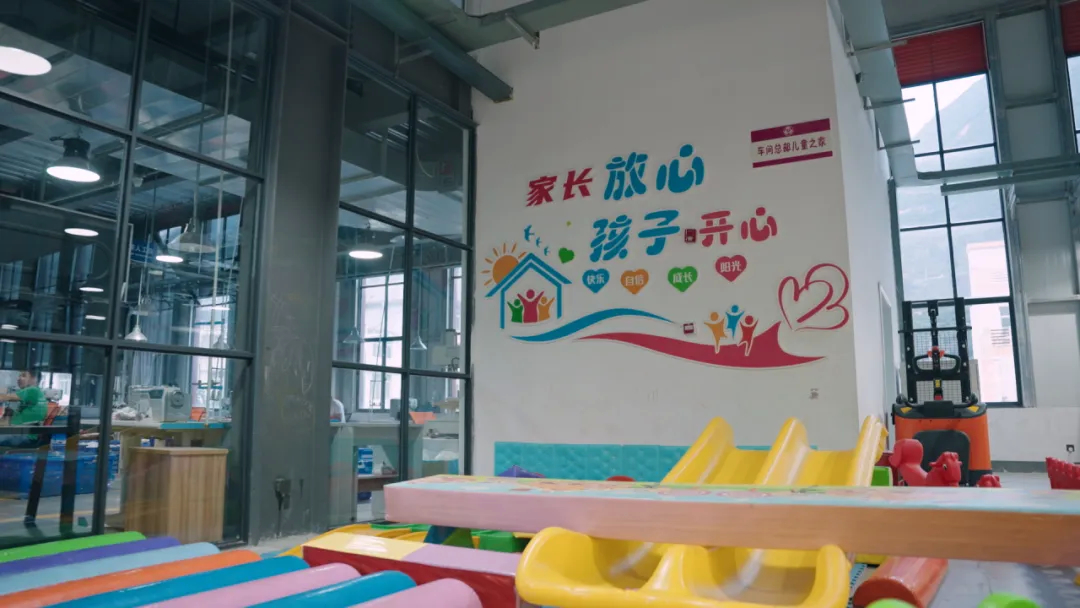 Play area for children in the Wenchuan handicraft workshop
Play area for children in the Wenchuan handicraft workshop
The workshop provides lunch for all employees, and those with severe disabilities can even take care of themselves with three meals a day at the factory. “They live in government-subsidized housing,so sometimes when they want to sleep in, they buy some food outside before coming over to the workshop,” said Shi.
After lunch, Wang usually takes just ten minutes to walk home and enjoys a little nap before heading back to work. “Before we had this factory, finding a job was so challenging. But with this factory we have increased our income and we can work close to where we live,” Wang says.
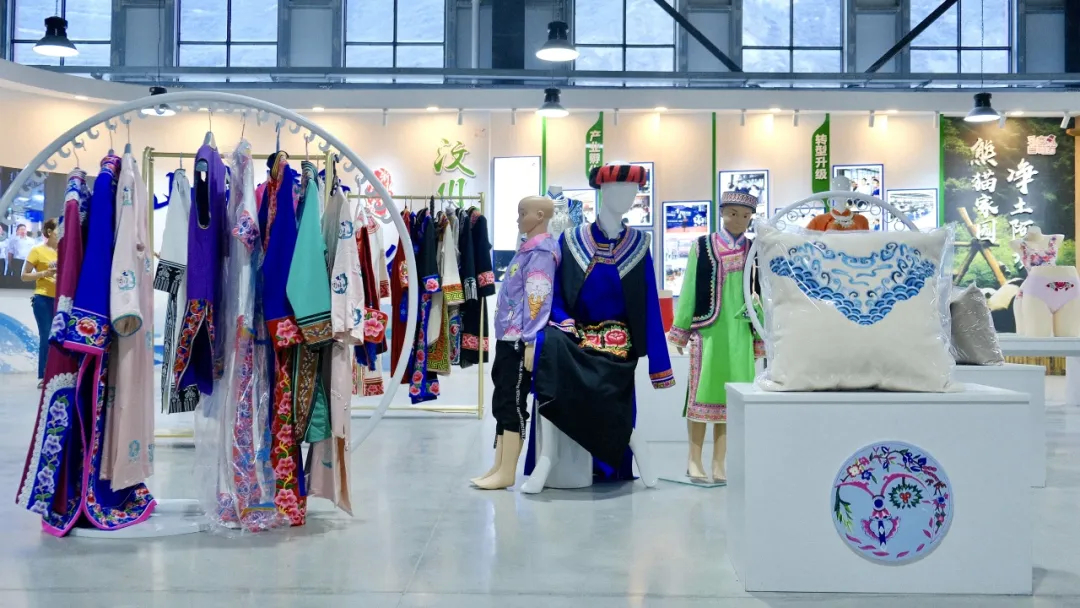 Ethnic clothes with exquisite embroidery made in The Wenchuan handicraft workshop
Ethnic clothes with exquisite embroidery made in The Wenchuan handicraft workshop
Up to now, the county has built 37 processing workshops, while also helping Mao County, Li County, Barkam City and Yantang County to promote the autonomous prefecture of more than 3,000 people getting a job near their home. Workshops in the county have processed a total of over 10 million pieces of products, with the total profits exceeding 9 million yuan, realizing the average per capita income increase of 2,200 yuan per month.
Over the past five years, the processing industry of this county has been strengthened. In 2020, it was successfully selected by the Ministry of Human Resources and Social Security as one of China's 20 typical poverty alleviation cases, and the only project selected from Sichuan Province.
Shi’s children have now grown up and are working elsewhere. “My kids aren't married yet, so I’ve got to keep saving. I’m really looking forward to them having a family – that's my biggest wish!” She said.
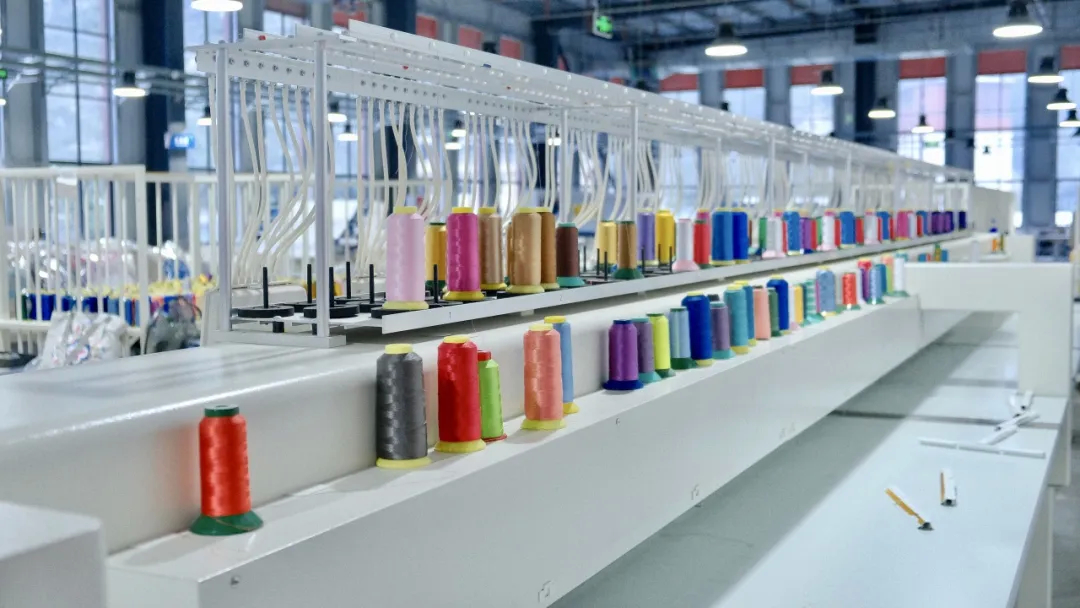 Embroidery area in the the Wenchuan handicraft workshop
Embroidery area in the the Wenchuan handicraft workshop
文字、排版|李若佳、张堃、王一川
图片|张堃、张智超

2025.12.16 15:15
16
2025.12
16
2025.12
16
2025.12
 28:32
28:32
2025.06.19 08:55